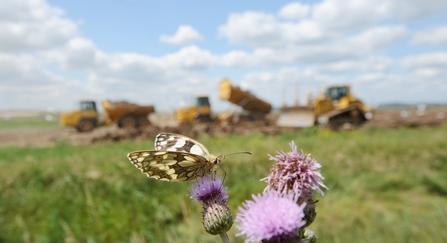I remember well those scorching summer days of the 1970s and 80s, turned out of the house after breakfast with no expectation of being home before supper. We roamed for miles without a care in the world, wrapped up in the scent and sight of nature, miles of it. So hot was the summer in 1976, I can still see quite vividly the hedge in our back garden spontaneously combust from the burning heat of the sun.
I recently Googled the ‘village’ where we lived in the West Midlands before moving to Herefordshire, a remote bygone place like a black and white picture book. Zooming in on Google Earth, those fields across which we roamed for days and miles had disappeared, giving way to bricks, concrete and tarmac. Multiple villages merged to one big sprawl of grey, devoid of anything green. All of that wildness gone: flower-rich meadows, hedgerows and trees erased; homes to nightingales and clouds of insects lost. Nature now a word, not real anymore. The sense of loss was overwhelming. This is the reality for millions of people across the UK. Astonishingly, we’ve had children visit our education centres who have never walked on grass.



